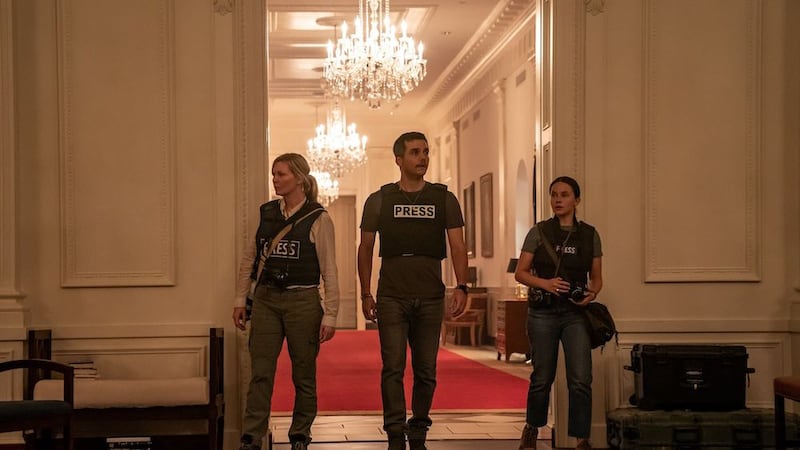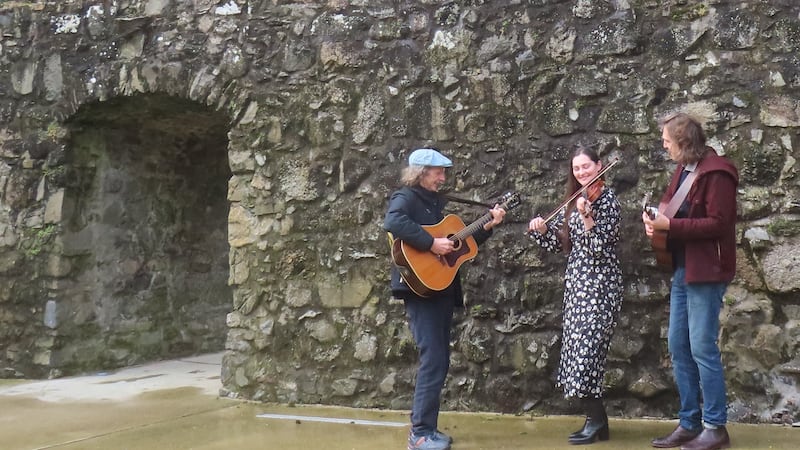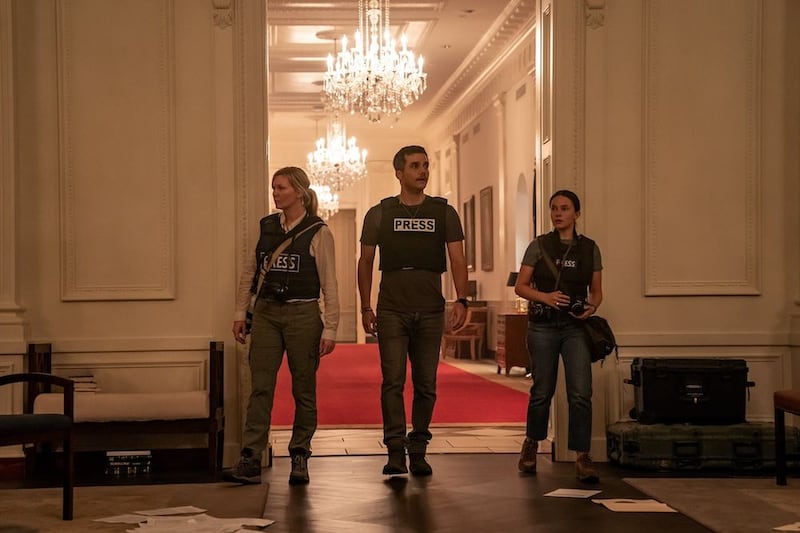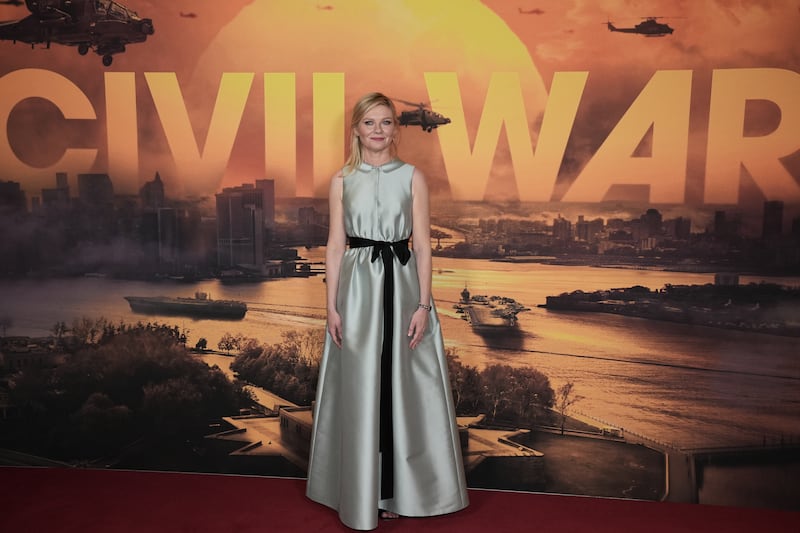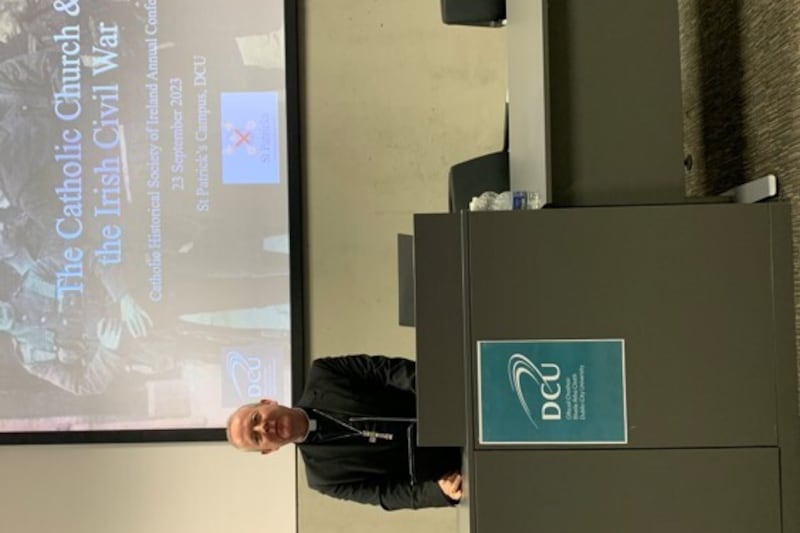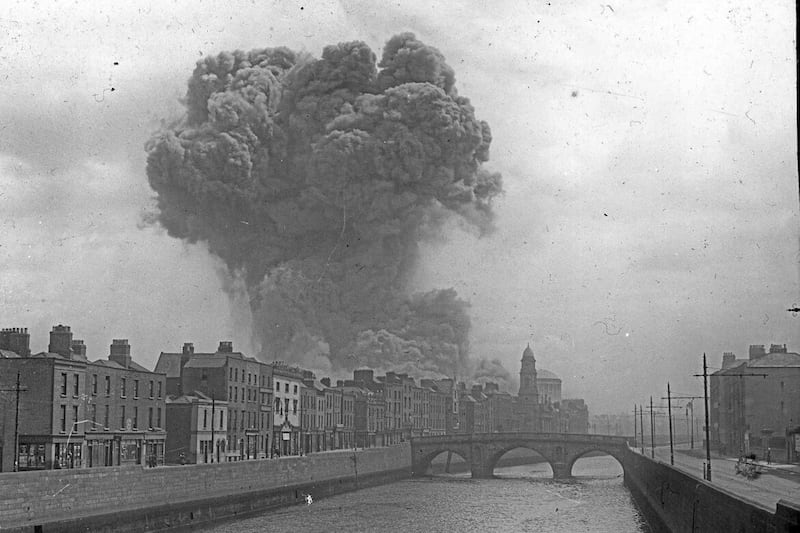Civil War (15, 109mins) Action/drama. Starring: Kirsten Dunst, Wagner Moura, Cailee Spaeny, Stephen McKinley Henderson
Director: Alex Garland
IN CIVIL War, writer-director Alex Garland delivers a heart-pounding thriller that delves into the complex world of journalistic ethics against the backdrop of a fractured United States.
While the film’s dystopian vision of America torn apart by conflict is deeply unsettling, it is the characters’ moral dilemmas that truly captivate the audience.
The story follows a group of journalists, led by veteran war photographer Lee Smith (Kirsten Dunst), as they embark on a perilous journey to Washington, DC. Their goal is to secure an interview with the seemingly doomed President (Nick Offerman) before the rebel forces close in.
Along the way, they navigate the landscape of a nation at war with itself, encountering danger and confronting their own ethical boundaries.
Garland’s decision to focus on the journalists’ perspective is a masterful one. By eschewing overt political commentary and instead zeroing-in on the individuals tasked with documenting the conflict, he creates a thought-provoking exploration of the role of the media in times of crisis.
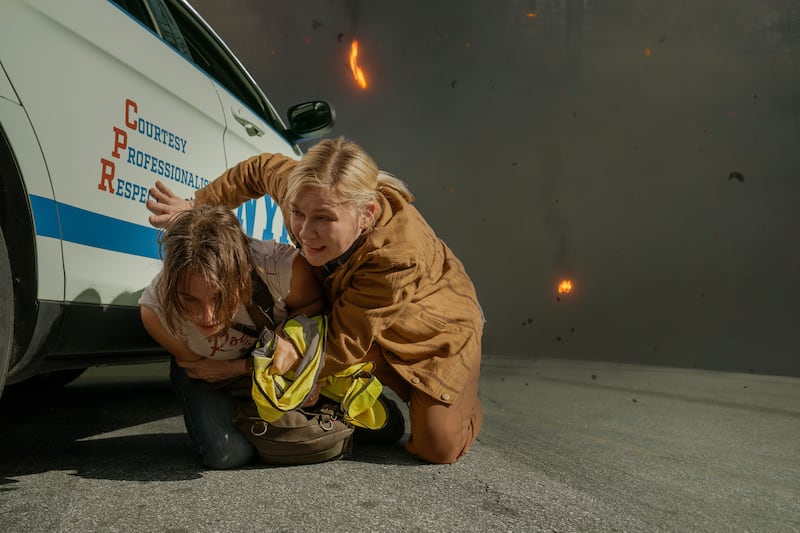
The journalists also work for a news agency, which also gives the viewer a seemingly unbiased point of entry into the story. The film raises questions about the responsibility of journalists to remain objective in the face of atrocities and the personal toll that such a commitment can take.
Kirsten Dunst delivers a powerful performance as Lee Smith, a jaded photographer who has become desensitised to the horrors she captures through her lens.
Dunst conveys the emotional toll of Lee’s work, as well as her struggle to maintain a sense of detachment in the midst of chaos. In a particularly fascinating scene, she admires flowers in the middle of a sniper shootout, almost showing that her constant confrontation with violence has taught her to find beauty in-between.
Her relationship with aspiring photographer Jessie (Cailee Spaeny) forms the emotional core of the film, as the two women navigate the complexities of their chosen profession.
Spaeny is equally impressive as Jessie, a young and idealistic photographer who idolises Lee. Through Jessie’s eyes, we witness the raw and visceral impact of war, as she experiences her first taste of the brutality that Lee has become all too familiar with.
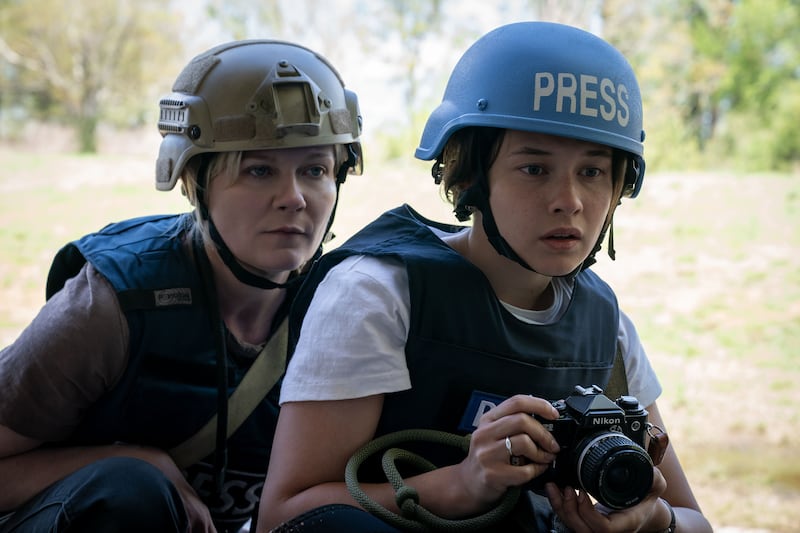
The contrasting approaches of the two photographers – Jessie’s film camera capturing pure, unfiltered moments and Lee’s digital camera reflecting her jaded perspective – serve as a poignant metaphor for their respective journeys.
While Wagner Moura delivers a solid performance as journalist Joel, his character feels somewhat underwritten compared to the central relationship between Lee and Jessie.
This minor weakness, however, does not detract from the overall impact of the film.
One of the most intriguing aspects of Civil War is its deliberate ambiguity regarding the political factors that led to the conflict depicted in the movie.
Garland chooses to focus on the human cost of war rather than delving into the ideological divisions that sparked it.
While this approach may frustrate some viewers seeking a more explicit political commentary, it allows the audience to draw their own conclusions and reflects the reality that, in the midst of violence, the reasons behind the conflict often become secondary to the struggle for survival.
Civil War’s visual style is a testament to Garland’s skill as a filmmaker. The juxtaposition of stunning, almost poetic images of a war-torn America with the brutality of conflict creates haunting imagery which, although exaggerated, is not far beyond potential reality.
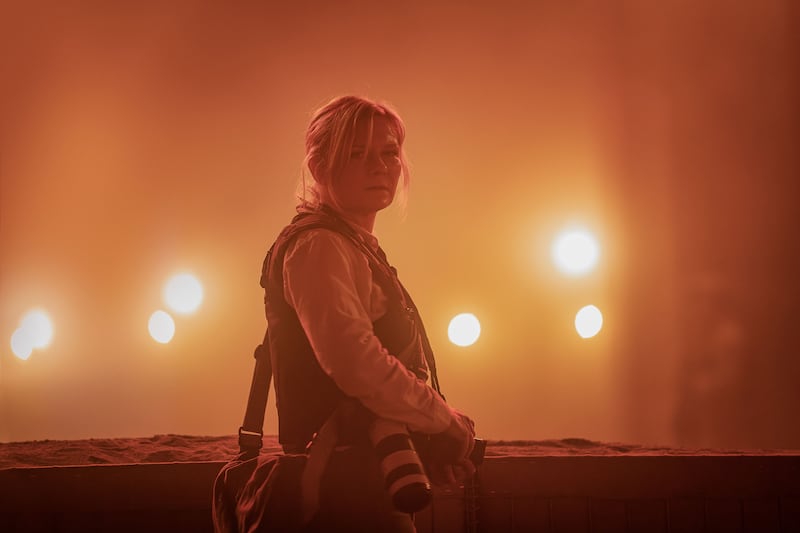
The final act, set against the backdrop of a besieged Washington, DC, is particularly breathtaking, delivering a riveting climax that’s executed superbly.
As I left the theatre, I found myself grappling with the same sense of unease and anxiety that the characters on screen experienced.
Civil War is a film that lingers long after the credits roll, inviting reflection and discussion about the role of the media in times of crisis and the psychology of journalists. It is a must-see for anyone interested in thought-provoking, emotionally charged cinema.
